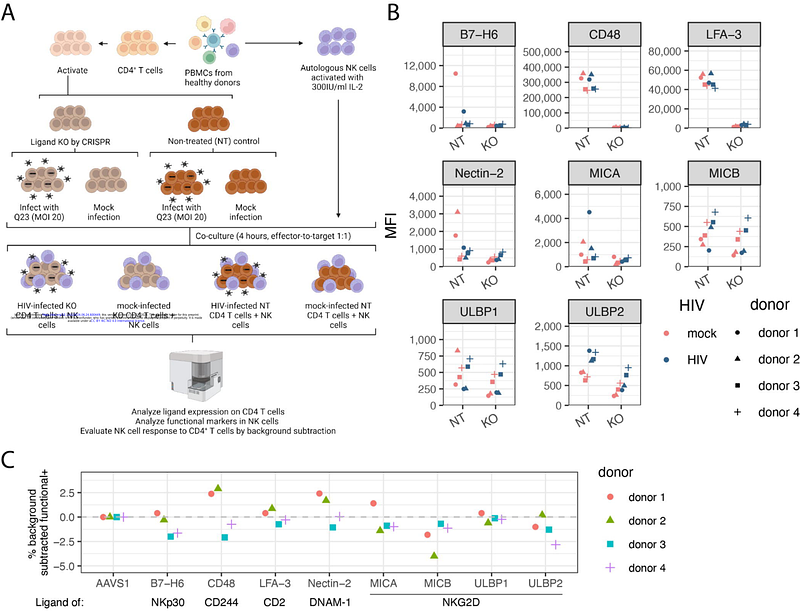NKp30 and NKG2D contribute to natural killer recognition of HIV-infected cells

NKp30 and NKG2D contribute to natural killer recognition of HIV-infected cells
Zhao, N. Q.; Pi, R.; Nguyen, D. N.; Ranganath, T.; Seiler, C.; Holmes, S.; Marson, A.; Blish, C. A.
AbstractNatural killer (NK) cells respond rapidly in early HIV-1 infection. HIV-1 prevention and control strategies harnessing NK cells could be enabled by mechanistic understanding of how NK cells recognize HIV-infected T cells. Here, we profiled the phenotype of human primary NK cells responsive to autologous HIV-1-infected CD4+ T cells in vitro. We characterized the patterns of NK cell ligand expression on CD4+ T cells at baseline and after infection with a panel of transmitted/founder HIV-1 strains to identify key receptor-ligand pairings. CRISPR editing of CD4+ T cells to knockout the NKp30 ligand B7-H6, or the NKG2D ligands MICB or ULBP2 reduced NK cell responses to HIV-infected cells in some donors. In contrast, overexpression of NKp30 or NKG2D in NK cells enhanced their targeting of HIV-infected cells. Collectively, we identified receptor-ligand pairs including NKp30:B7-H6 and NKG2D:MICB/ULBP2 that contribute to NK cell recognition of HIV-infected cells.